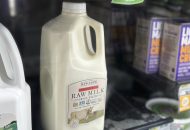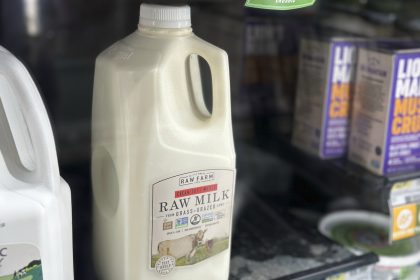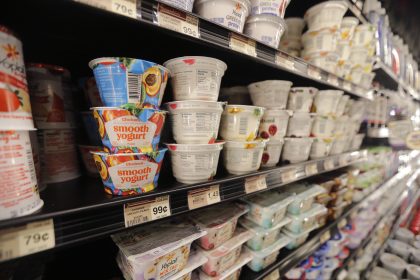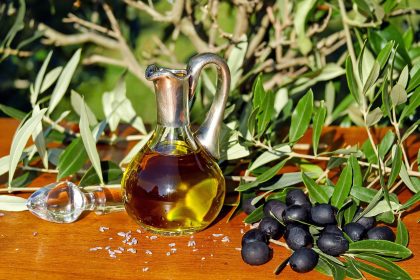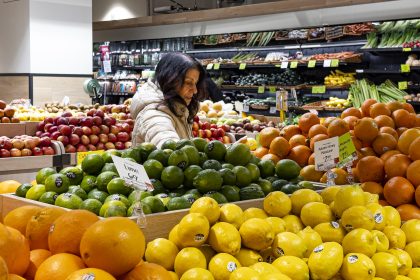USDA Tells Producers to Reduce Salmonella in Certain Frozen Chicken Products
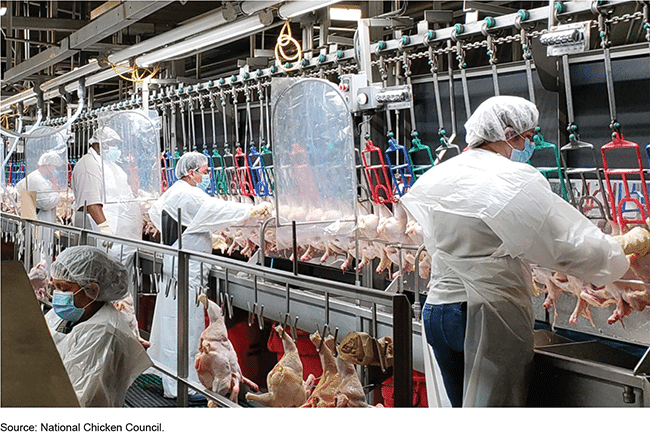
Poultry producers will be required to bring salmonella bacteria in certain chicken products to very low levels to help prevent food poisoning under a final rule issued Friday by U.S. agriculture officials.
When the regulation takes effect in 2025, salmonella will be considered an adulterant — a contaminant that can cause foodborne illness — when it is detected above certain levels in frozen breaded and stuffed raw chicken products. That would include things like frozen chicken cordon bleu and chicken Kiev dishes that appear to be fully cooked but are only heat-treated to set the batter or coating.
It’s the first time the U.S. Department of Agriculture has declared salmonella as an adulterant in raw poultry in the same way that certain E. coli bacteria are regarded as contaminants that must be kept out of raw ground beef sold in grocery stores, said Sandra Eskin, the USDA’s undersecretary for food safety.
The new rule also means that if a product exceeds the allowed level of salmonella, it can’t be sold and is subject to recall, Eskin said.
Salmonella poisoning accounts for more than 1.3 million infections and about 420 deaths each year in the U.S., according to the Centers for Disease Control and Prevention. Food is the source of most of those illnesses.
The breaded and stuffed raw chicken products have been associated with at least 14 salmonella outbreaks and at least 200 illnesses since 1998, CDC statisticss show. A 2021 outbreak tied to the products caused at least three dozen illnesses in 11 states and sent 12 people to the hospital.
Despite changes to labels emphasizing that the products needed to be thoroughly cooked, consumers continued to fall ill, Eskin said.
“Sometimes the salmonella is very virulent,” she said.
Addressing a narrow category of poultry products lays the foundation for a new framework to regulate salmonella more broadly now being considered by federal officials, said Mike Taylor, a former U.S. Food and Drug Administration official in charge of food safety.
Among other things, the proposal calls for greater testing for salmonella in poultry entering a processing plant, stricter monitoring during production and targeting three types of salmonella that cause a third of all illnesses.
“It’s no question that moving down this path toward regulating salmonella as an adulterant is way overdue,” Taylor said.
Poultry industry officials have long said that the government already has tools to ensure product safety and that companies have invested in methods to reduce salmonella in raw chicken.
A representative for the National Chicken Council said officials had not seen the final rule. However, the trade group said in a statement it’s concerned the regulation represents an abrupt policy shift and that it “has the potential to shutter processing plants, cost jobs, and take safe food and convenient products off shelves, without moving the needle on public health.”
The USDA took similar action with E. coli bacteria in 1994 after deadly outbreaks of food poisoning tied to ground beef, and the number of related foodborne illnesses have fallen by more than 50%.
Seattle food safety lawyer Bill Marler — who represented clients in a deadly 1993 E. coli outbreak in fast-food hamburgers and has lobbied for broader changes in controlling salmonella — said the new regulation is a good first step.
“Setting a standard is going to force the industry to adjust,” he said.
___
The Associated Press Health and Science Department receives support from the Howard Hughes Medical Institute’s Science and Educational Media Group. The AP is solely responsible for all content.














